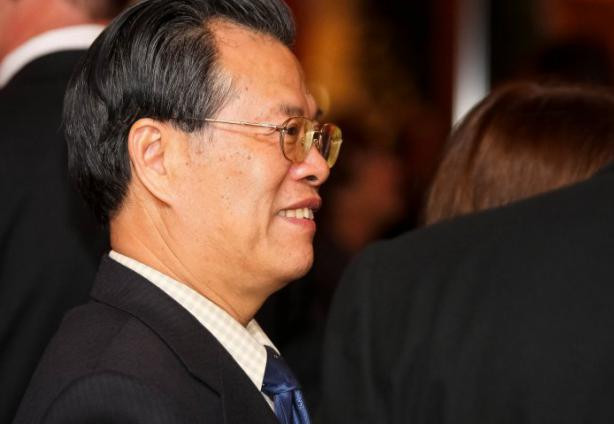How much money do you need to be a happy in a moneyless society?
According to Rupert Hoogewerf of The Hurun Report, who spoke to a record turnout of over 86 private guests Monday night at JS restaurant on the subject of “Capitalism in Communist China”, that idealistic price tag comes in at a cool US$10 million.
$17 million buys you economic freedom and a billion buys you unhappiness.
Under the guise of the “China Chopsticks Dinner Group” and hosted by Marine Tse and Mikkel Stroerup, the networking gala of executives and entrepreneurs gathered to be both entertained and informed on the most important subject of our time: are Chinese Communists all that different from us?
Here’s a hint (backed up by Evan Osnos’ excellent New Yorker “Dispatches from China”): not much.
They love French holidays and wine, Swiss time pieces, American, British and Canadian universities, glamorous status-laden clothing and fast cars. They like to golf and to prioritise their health; they are highly motivated to educate their children privately, expensively and, most interestingly for Luxembourg, internationally. Switzerland, a country of comparative similarity to Luxembourg, is the fastest growing educational destination for the newly affluent Chinese entrepreneurial class.
After years of stacking their party power structures with compliant scholars, military figures and proletariat, starting with perhaps Nixon’s overture to Mao Zedong in the 1970s, the 1990’s saw the loosening of Marxist tradition.
Similar to Chambers of Commerce
The country is run by a complex set of internal and external parties that act as judiciaries one upon the other and local powerbrokers and trade associations not much different from our chambers of commerce.
Chinese officials who govern the party and its affiliate structures are wealthy indeed.
The 70 wealthiest party officials have acquired more money in 2012 alone than the combined worth of all 535 members of US Congress, the president, his cabinet and all nine Supreme Court judges. In one year.
Whew.
So the 64 million dollar question is: did they acquire that wealth whilst in office or first make their fortunes and then get appointed to leadership?
Current statistics indicate much of that wealth is self-made.
“These are incredibly proud people, possessed of super-human focus,” said Hoogewerf. “In our entrepreneurial age, they have gained their public position by virtue of their ability in the private sector.”
Not strictly Communist
But it was perhaps Chinese Ambassador Zeng Xianqi (photo), who subtly delivered the most poignant remark: “China’s Communist Party has 80 million members but the Chinese population is 1.3 billion, so we choose not to call China a Communist country in the same vein that we do not say Luxembourg is a strictly Christian-democratic country. China has always been and likely will remain a socialist country that practises its socialism with Chinese characteristics.”
China is in transition, but its roots are communal and have largely favoured the overall welfare of the people at the expense of the individual. As China addresses its industrial coming-of-age under the hyper florescent lights of the world’s media circus, they are trying very hard to balance this historic departure from collectivism, whilst bringing up the many on the fortunes of the few.
Saying anything else at this point would just be speculation.
Paul Comrie is a former Asia-based journalist and currently is a freelance writer and communications consultant in Luxembourg.
